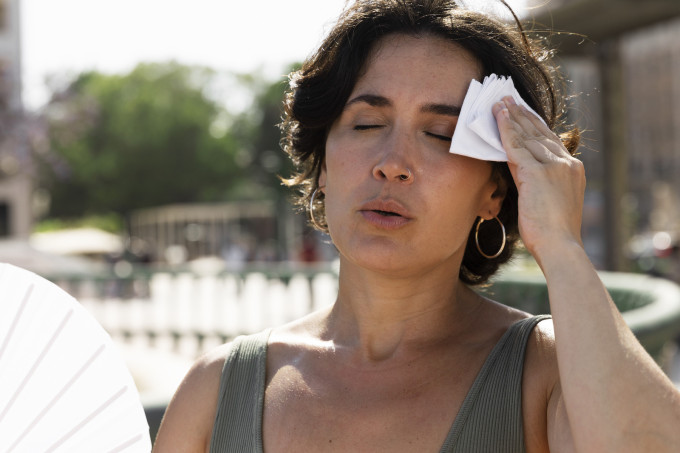Energising or exhausting? Exploring sunlight’s dual impact on health
The significance of sunlight exposure on our health cannot be overstated. However, it becomes paramount to understand how sunlight affects our energy levels and overall well-being during these scorching summer days.
Dr RR Dutta, HOD, internal medicine, Paras Health, Gurugram explains, “Sunlight exposure triggers the release of a hormone called serotonin in the brain. While serotonin is often associated with mood regulation, it also plays a role in promoting wakefulness.”

However, prolonged exposure to sunlight can lead to the release of another hormone, melatonin, which is responsible for regulating sleep-wake cycles. The increase in melatonin can make you feel drowsy or tired.”
View this post on Instagram
A post shared by Cleveland Clinic (@clevelandclinic)
Sunlight’s effect on the body’s circadian rhythm
Sunlight exposure, particularly in the morning, helps synchronise our internal body clock, or circadian rhythm, with the external environment.
 Excessive exposure later in the day can disrupt this rhythm, leading to feelings of tiredness (Source: Freepik)
Excessive exposure later in the day can disrupt this rhythm, leading to feelings of tiredness (Source: Freepik)
Dr Dutta says, “When sunlight hits the retina, it sends signals to the brain’s suprachiasmatic nucleus (SCN), which regulates the production of hormones like cortisol (to wake you up) and melatonin (to promote sleep). Exposure to sunlight in the morning helps suppress melatonin production, keeping you awake and alert during the day.”
However, excessive exposure later in the day can disrupt this rhythm, leading to feelings of tiredness, he states.
Individuals may vary in their sensitivity to sunlight-induced fatigue due to differences in circadian rhythms or hormone levels. Dr Dutta adds, “People with certain medical conditions, such as Seasonal Affective Disorder (SAD) or sleep disorders, may be particularly prone to feeling tired after sun exposure.”
Health issues that may exacerbate feelings of tiredness
Dr Dutta mentions that SAD, chronic fatigue syndrome, or vitamin D deficiency can exacerbate feelings of tiredness after sun exposure. Additionally, certain medications or treatments may increase sensitivity to sunlight and contribute to fatigue.
Lifestyle adjustments that may help alleviate fatigue
To combat fatigue stemming from sun exposure, Dr. Dutta advises maintaining a consistent sleep schedule and ensuring adequate exposure to natural light, especially in the morning. In cases of vitamin D deficiency, supplementation under medical supervision may be necessary. Additionally, staying hydrated and protecting the skin from excessive sunlight with sunscreen and protective clothing are essential practices to uphold.
As we embrace the warmth of the sun this summer, let us be mindful of its profound effects on our health and well-being. By understanding how sunlight influences our circadian rhythm and taking proactive measures to mitigate fatigue, we can harness its benefits while safeguarding our vitality.
Disclaimer: The copyright of this article belongs to the original author. Reposting this article is solely for the purpose of information dissemination and does not constitute any investment advice. If there is any infringement, please contact us immediately. We will make corrections or deletions as necessary. Thank you.

